Activities and Simulations
PhET Interactive Simulations
Massive collection of excellent (and free!) science and math sims
Bottom Line: Instantly add meaningful lab experiences to math and science classrooms for free? It's tough to beat that.
Desmos

Powerful graphing calculator deepens understanding with visualization
Bottom Line: Desmos combines interactivity, visualization, personalization, and collaboration to deepen students' understanding of geometry and graphing concepts.
GeoGebra
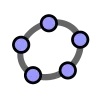
Create, share, and modify math models and simulations
Bottom Line: Free, open-source software that lets teachers build or adapt learning experiences to meet their kids' needs.
Prepmagic

Customize science simulations to highlight phenomena
Bottom Line: Science simulations become more effective with teacher-added edits and formative assessments.
Data and Visualizations
ClassCalc

Free all-in-one calculator makes the most out of BYOD classrooms
Bottom Line: ClassCalc levels the playing field for students and offers teachers usable features.
Tuva Labs

Dynamic data-exploration tool offers large collection of data sets
Bottom Line: Partner with another teacher (preferably a data whiz) and work together to develop cross-curricular activities.
CODAP

Drag and drop data to investigate nearly any subject
Bottom Line: A bit awkward to use, but far more engaging than traditional spreadsheet/graphing tools.
DataClassroom
Statistical analysis for science classrooms made easy
Bottom Line: Perform a t-test or chi-square analysis using your own data or provided data sets.
FooPlot
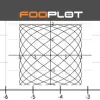
Plot points, make graphs with basic but functional tool
Bottom Line: It's free, it's simple, and it does the job; you can plot functions, polar equations, parametrics, and points.
TI Math

Straightforward, standards-aligned graphing calculator activities
Bottom Line: TI Math activities use graphing utilities and focus more on procedural learning than reasoning.
Symbolab
All-too-easy tool for solving, and seeing, step-by-step math solutions
Bottom Line: A great visual tool for students and teachers to explore complex math equations, though some may use it just to get quick answers.
Geometry Tools
Choreo Graph
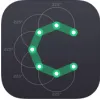
Animate with fun geometry STEAM app; learning requires teacher support
Bottom Line: Teachers and classroom communities are needed for app activities to meet their learning potential; start with the coordinating lessons.
Geometry Pad

Construct and explore geometric figures with smart digital workbook
Bottom Line: This free version has limited features, but it's an interactive, tech-savvy way for kids to explore advanced geometry.
isosceles+ : geometry sketchpad
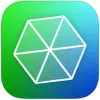
Digital tool for exploring and constructing lines, angles, shapes
Bottom Line: Versatile high-tech, hands-on tool is useful for teaching, exploring, constructing geometric figures.
Science Tools
Arduino Science Journal
Turn your phone into a lab sensor to collect and analyze data
Bottom Line: Science Journal does a good job recording real-time motion, sound, and light data using phones.
Lab4Physics
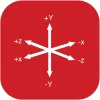
Bring physics to life using lab sensors built right into your smartphone
Bottom Line: Use your smartphone to gather data and study speed, gravity, waves, and other physics concepts.
The PocketLab
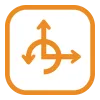
Gather and analyze live data anywhere
Bottom Line: A science sensor that pairs with your device to gather and analyze data is perfect for inquiry-based learning.
Graphing Games
Mangahigh

Awesome, adaptive math games with a killer teacher dashboard
Bottom Line: Fantastic tool for flipped or blended classrooms, formative assessment, or extra practice in any setting.
Math Snacks
Satisfying mathematical treats kids will gladly gobble up
Bottom Line: Teachers and students will excel with engaging, often funny material; it's a pleasure to explore these extensive resources.








